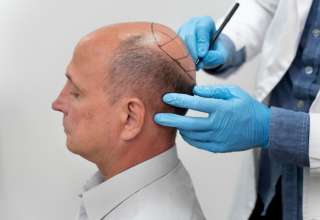This is not a one-off incident. You’ve been seeing your teen exhibit this behavior quite frequently. They find it hard to cope during test time, sometimes, they are not so far from you, yet you call their name and they can’t hear you.
Your teen forgets to turn in most assignments. Maybe your teen has been diagnosed previously with ADD or you start to worry you didn’t test them on time.
In reality, have you stopped to consider if your teen’s poor attention is actually ADDor could it be as a result of some external factors.
The CDC (Center for Disease Control and Prevention) discovered that from2003 to 2016, there was a shocking 43% rise in ADD diagnoses. These high numbers have caused many to wonder if teens are not wrongly being over-diagnosed because of their over-commitment.
Teens in recent times have so much more to handle than those in previous decades.
If you think your teen is having issues with attention because of their overcommitment, here are a few tips to help them manage the situation.
Reduce Excess Workload
63% of students feel highly pressured to gain admission to a good college. Several teens over-commit to choir practice, school plays, AP courses, field hockey, and jazz band.
To add to that, these teens go-ahead to start and run their own club, as they see these activities as vital resume builders.
The drive and intensity to achieve all these could be the major reason for the high rate of several ADD-related behaviors that are turning out. Some of these behaviors include:
- Test anxiety
- Tuning out
- Sports performance anxiety among others.
In the 21st century, the workload teens are grappling with is just too much for them to cope with. Despite the stress it is causing them, they don’t feel it is a bad thing or a major problem.
At the same time, teens don’t feel the need to change because of society’s perception that staying busy is equivalent to being successful.
If you notice your teen struggles with paying attention, practice empathic listening, and make them shed off unnecessary extracurricular activities they are involved in. This enables them to focus on the few but important activities that count.
Research has shown that the executive functioning of a person under stress will grow weaker. For this reason, we recommend that you encourage your teen to concentrate their effort on the activity they love the most and can successfully handle.
The advantage of lesser activities is that it doesn’t overtask your teen’s attention span.
Take Frequent Time-Off From Social Media
Social media is another strong element that puts great pressure on teens and makes them overcommit.
Despite 45% of teenagers mentioned feeling overwhelmed by social media, that doesn’t deterabout70% of teens who are constant social media users.
Teens have this need to constantly be on social media and not miss out on anything new. Even though it contributes to their high level of teen stress, and maybe the cause of their brain drain.
To reduce social media pressure on your teen, there is a need for them to take regular breaks from their accounts every once in a while. The break could be a day or two at a stretch.
Your teen has to learn not to fret when they miss a story, comment, or post. You could also install parental controls to check their activities and make them accountable.
As hard as it may be, your teen has to train themselves to ignore the digital world from time to time. So they can accomplish other important goals in real life.
We recommend you negotiate with your teen when they want to take a sabbatical leave from social media. Then you monitor how they fare in their school work and home chores during this period.
Make them understand this sabbatical to help you know whether being overcommitted is the cause of their attention problem or ADD.
Does Your Teen Have To Be On Medication?
Even if the doctor diagnoses your teen with ADD, other factors besides neurological problems could also be behind their poor attention disorder.
Before letting your teen be placed on medication, see if theirADD can be managed with a more relaxed and easier schedule.
You must try this first, if it works, there shouldn’t be any need for your teen to take medications. Why let your teen become dependent on a drug they don’t really need.
ADD stimulants come with their fair share of unwanted side effects like weight loss, poor body image, lack of appetite, and anxiety.
While it’s true lots of teens do need and will benefit from ADD drugs. There’s a chance that constantly labeling all poor attention disorders as an ADD case instead of considering the influence of other factors is causing overmedication.
If a teen suffers from ADD and has learned how to manage the symptoms without using a medication, that is probably the healthiest path to take.
If you observe your teen struggling with the simplest of schedules because ADD is hindering their ability to learn coping tactics – then your child does need to go on medication.
What Step Do I Take?
You need to have a serious discussion with your teen and a qualified psychiatrist. You have to be sure your teen truly suffers from ADD or is affected by other stress factors.
If your teen starts taking medication, do a trial run to see the effect of the drug.
Did the drug help or worsen the situation? The answer to this should help you decide whether the treatment is necessary or if changing lifestyle and using coping techniques would be enough for success.
We suggest you stay smart and alert when your teen is introduced to any treatment that can be abused. Many teens exchange their ADD drugs for some cash.
In the black market, some teens who don’t have ADD, also use the drug to get high, while other teens with demanding schedules use the pills to stay active and energetic.
It is not uncommon for teens to ground ADD pills and snort them for a buzz. If it becomes absolutely necessary for your teen to take the pills, it might be helpful to keep the drugs in your care.
When they have to take it, you give one pill at a time to help you know your teen is using the new drug solely to improve their focus and not abusing it.
Teens sometimes abuse the drug by using more of it at a time than recommended in order to get “high” as this makes them more energetic and positive.
Final Thoughts
From our study, we realize that there is an ever-increasing number of stressors and commitments overwhelming teens today.
Instead of these factors being thoroughly checked first, an ADD diagnosis is promptly given, and consequently ADD medications are prescribed.
We advise that before placing your teen on medication, whether they’re diagnosed or not, greatly trim down the number of intense extracurricular programs in their life.
The next thing your teen has to cut back on is the number of hours used on social media.
These measures can be a step to improving the attention of your teen if they concentrate on the things they love the most.
Rather than stressing themselves on being the most popular on social media or being the best university candidate.
Author Bio:
Andy Earle is a researcher who studies parent-teen communication and adolescent risk behaviors. He is the co-founder of talkingtoteens.com, ghostwriter at WriteItGreat.com, and host of the Talking to Teens podcast, a free weekly talk show for parents of teenagers.














